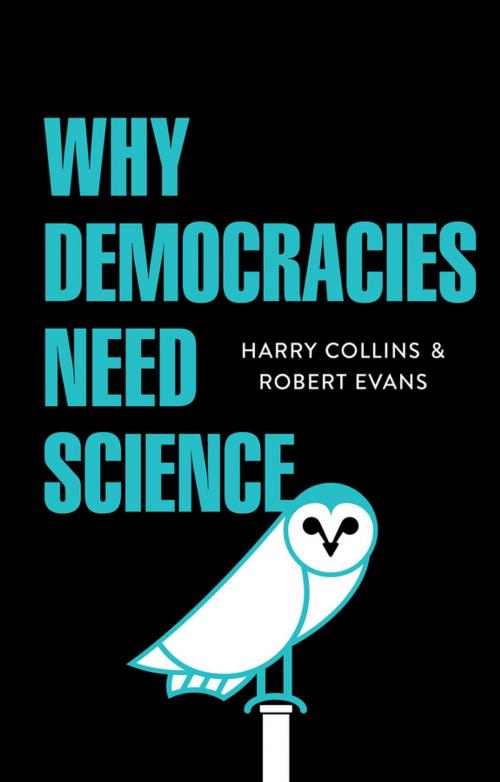Why Democracies Need Science
Nonfiction, Science & Nature, Science, Other Sciences, Philosophy & Social Aspects| Author: | Harry Collins, Robert Evans | ISBN: | 9781509509645 |
| Publisher: | Wiley | Publication: | March 27, 2017 |
| Imprint: | Polity | Language: | English |
| Author: | Harry Collins, Robert Evans |
| ISBN: | 9781509509645 |
| Publisher: | Wiley |
| Publication: | March 27, 2017 |
| Imprint: | Polity |
| Language: | English |
We live in times of increasing public distrust of the main institutions of modern society. Experts, including scientists, are suspected of working to hidden agendas or serving vested interests. The solution is usually seen as more public scrutiny and more control by democratic institutions – experts must be subservient to social and political life.
In this book, Harry Collins and Robert Evans take a radically different view. They argue that, rather than democracies needing to be protected from science, democratic societies need to learn how to value science in this new age of uncertainty. By emphasizing that science is a moral enterprise, guided by values that should matter to all, they show how science can support democracy without destroying it and propose a new institution – The Owls – that can mediate between science and society and improve technological decision-making for the benefit of all.
We live in times of increasing public distrust of the main institutions of modern society. Experts, including scientists, are suspected of working to hidden agendas or serving vested interests. The solution is usually seen as more public scrutiny and more control by democratic institutions – experts must be subservient to social and political life.
In this book, Harry Collins and Robert Evans take a radically different view. They argue that, rather than democracies needing to be protected from science, democratic societies need to learn how to value science in this new age of uncertainty. By emphasizing that science is a moral enterprise, guided by values that should matter to all, they show how science can support democracy without destroying it and propose a new institution – The Owls – that can mediate between science and society and improve technological decision-making for the benefit of all.















